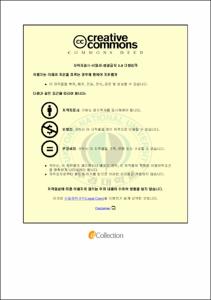원산지규정 분석을 통한 수출 중고품 및 재(再)제조물품에 대한 FTA 특혜관세활용방안
- Abstract
- Abstract
While in most cases, the objects of international trade are brand new completely unused goods, because international trade of used goods has been in a rising trend recently as a result of increase in the durability of goods, we need to review a plan to utilize FTA preferential tariffs on used goods and the legal ground thereof. While used goods generally mean the used goods which can be re-used after being purchased and simply washed or repaired, re-manufactured goods mean the goods re-commercialized in a way where the goods can maintain the level of performance similar to or better than that of new goods by systematically collecting used goods, that is to say, the goods of which the service life has come to an end due to a cause such as failure or disuse, and putting them through the process of disassembly, washing, inspection, part replacement and adjustment, and re-assembly. Though there was no separate provision related to such re-manufactured goods in the FTAs concluded in the past, as a separate provision is included in the Korea-US FTA, we need to review a plan for Korean re-manufacturers to efficiently utilize FTA preferential tariffs when exporting re-manufactured goods by analyzing rules of origin specified in the Korea-US FTA in relation to re-manufactured goods.
The objective of this study is to grasp the FTA utilization status for used goods and re-manufactured goods that are exported and the problems related to utilization, and to grope for a plan to utilize the FTA preferential tariffs by analyzing rules of origin specified in FTAs in relation to used goods and re-manufactured goods.
For used goods, as there are almost no related provisions in the existing FTAs, there are limitations in discussing issues such as whether used goods can be an object of an FTA preferential tariff or not, and the method to determine the county of origin of used goods.
Though the exported used goods such as used vehicles and used tires are the items receiving the benefits of FTA, for which a country of origin verification material (such as BOM) that can verify that the country of origin of the relevant goods is Korea, is required to be presented in order to earn the practical benefits of an FTA preferential tariff, it can be said that there are limitations in really applying a preferential tariff due to the difficulty in verifying the country of origin unless the exporter is the original manufacturer. Accordingly, cooperation from original manufactures is required for utilization of the FTA preferential tariff on used goods, and a plan to institutionalize such a part should be arranged. Also, rules of origin for used goods is required to be separately specified to allow easier application differently from that of new goods considering the present situation where utilization is practically difficult.
Though the re-manufacturing industry is an industry suitable for the era of low-growth/high-price that contributes to preserving energy and resources, price stabilization, creation of jobs, and expansion of customers' freedom of choice, for Korea, there are limitations in invigoration of the re-manufacturing industry differently from the developed countries of re-manufacturing such as USA or Europe, due to the consumption structure centered around new goods, absence of differentiation of high-grade used goods from low-grade used goods, difficulty in searching for a market, and absence of cooperation from the original manufacturers.
As the export of re-manufactured goods by developed countries increases and the interest of China, India, etc. in re-manufactured goods grows, Korea should also protect and foster a re-manufacturing industry and, on the other hand, arrange a policy for export support reinforcement. Additionally, in the situation where the export of used cars to the regions such as Southeast Asia, South America, and Middle East is increasing, and the demand for re-manufactured goods is expected to increase due to the price burden of purchasing genuine parts, Korea is also required to establish a negotiation strategy that enables Korean re-manufactured goods exporters to more efficiently utilize FTA preferential tariffs, considering the environment of these companies when negotiating an FTA rules of origin with these countries in the future as the USA has reflected the situation and requirements of the domestic industries.
- Issued Date
- 2015
- Awarded Date
- 2015. 2
- Type
- Dissertation
- Publisher
- 부경대학교 대학원
- Affiliation
- 국제통상물류학과
- Department
- 대학원 국제통상물류학과
- Advisor
- 윤광운
- Table Of Contents
- < 목 차 >
ABSTRACT ⅴ
제 Ⅰ 장 서 론 1
제1절 문제의 제기 및 연구의 목적 1
제2절 연구의 방법 및 범위 2
제 Ⅱ 장 이론적 배경 및 현황분석 4
제1절 선행연구 4
제2절 FTA 원산지규정 개관 9
1. 원산지규정의 의의 및 법령체계 9
2. 원산지결정기준 12
3. 원산지증명방식 및 검증제도 14
제3절 중고품 및 재제조물품의 FTA활용현황 및 문제점 17
1. 개념정의 17
2. 중고품의 FTA 활용현황 및 문제점 20
3. 재제조물품의 FTA 활용현황 및 문제점 26
제 Ⅲ 장 FTA 협정상 원산지규정분석 32
제1절 중고품 및 재제조물품의 품목분류 32
제2절 원산지규정분석 34
1. 중고품관련 원산지규정분석 34
2. 재제조물품관련 원산지규정분석 42
제 Ⅳ 장 제기된 문제의 검토 및 FTA 특혜관세 활용방안 45
제1절 제기된 문제의 검토 45
제2절 중고품 및 재제조물품 수출시 특혜관세활용방안 48
1. 중고품 수출시 특혜관세 활용방안 48
2. 재제조물품 수출시 특혜관세 활용방안 50
제 Ⅴ 장 결 론 55
제1절 연구의 요약 및 시사점 55
제2절 연구의 한계 및 향후 연구과제 57
참고문헌 58
- Degree
- Master
- Appears in Collections:
- 대학원 > 국제통상물류학과-FTA비즈니스전공
- Files in This Item:
-
-
Download
 원산지규정 분석을 통한 수출 중고품 및 재(再)제조물품에 대한 FTA 특혜관세활용방안.pdf
기타 데이터 / 5.53 MB / Adobe PDF
원산지규정 분석을 통한 수출 중고품 및 재(再)제조물품에 대한 FTA 특혜관세활용방안.pdf
기타 데이터 / 5.53 MB / Adobe PDF
-
Items in Repository are protected by copyright, with all rights reserved, unless otherwise indicated.